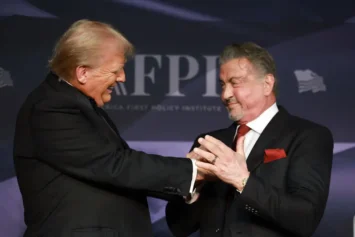Several Black employees alleged in a lawsuit that General Mills permitted a “racially hostile work environment” run by a “fraternal group of male white supremacists” who harassed, intimidated, and demeaned the Black workforce at a Georgia plant.
That lawsuit, obtained by Atlanta Black Star, states that the company ignored complaints for years about a group of white managers and human resources administrators who formed a group dubbed the “Good Ole Boys” and systematically enforced discriminatory policies and practices against Black workers at a factory in Covington, Georgia.

According to the suit, members of this group used “false and manufactured evidence” to take adverse, disciplinary action against Black employees, used false information to demote Black workers, and retaliated against Black employees for filing HR complaints reporting racial discrimination.
The suit goes on to say the group also believed the use of imagery associated with the Ku Klux Klan and the Confederacy kept Black people “in their place” and intimidated Black workers into staying silent about the discrimination at the plant.
The plaintiffs documented one example of how this imagery was used in a mural the company commissioned at the Covington plant in 2005.
That year, General Mills approved a mural design of Stone Mountain crafted by a Good Ole Boys member that featured cartoon characters from General Mills cereals.
The mural depicts Cocoa Puffs mascot Sonny the Cuckoo Bird as Jefferson Davis, former Cinnamon Toast Crunch mascot Chef Wendell as Robert E. Lee, and Cheerios mascot Buzz the Bee as Stonewall Jackson. It was taken down in 2021.
The Good Ole Boys group also allegedly encouraged “racist white employees” to “harass and mistreat” Black employees and routinely treated white plant workers more favorably than Black workers.
The eight Black plaintiffs who sued the company documented in their claim numerous instances over the last 20 years in which they were terrorized and harassed in “egregious incidents of racism” that were ignored by General Mills.
In 1993, a noose was left on one Black worker’s desk, and the year after that, he was told to “Go back to Africa.” He reported the incidents to HR, but no disciplinary measures were taken. That same worker was also consistently passed over for promotions given to “less-qualified individuals.”
In the early 2000s, the word “coon” was written on another Black employee’s work forms, and his initials were scribbled on the wall of a factory restroom with the phrase, “KM is a f***ing [N-word].” Sometime around 2006, he found “KKK” etched onto his lunchbox and was ordered to submit a handwriting sample to prove he didn’t write it.
The suit also states that one Good Ole Boys manager called Black people “colored” well beyond the 1990s and that another told one plaintiff that “women should be at home having kids.”
Other plaintiffs also noted they were passed over for promotions despite having more experience and education than other candidates or were fired or demoted after white managers falsified information about their work performance.
The suit demands a jury trial, the dissolution of the Good Ole Boys group, and compensatory and punitive damages to the plaintiffs who suffered emotional distress, mental anguish, and loss of enjoyment of life.
General Mills, one of the largest food manufacturers and marketers in the U.S. and known for its cereals, baking goods, and snacks, told CNN that it does not comment on pending litigation. The company said that it “has a long-standing and ongoing commitment to diversity, equity and inclusion and we do not tolerate discrimination of any kind.”


